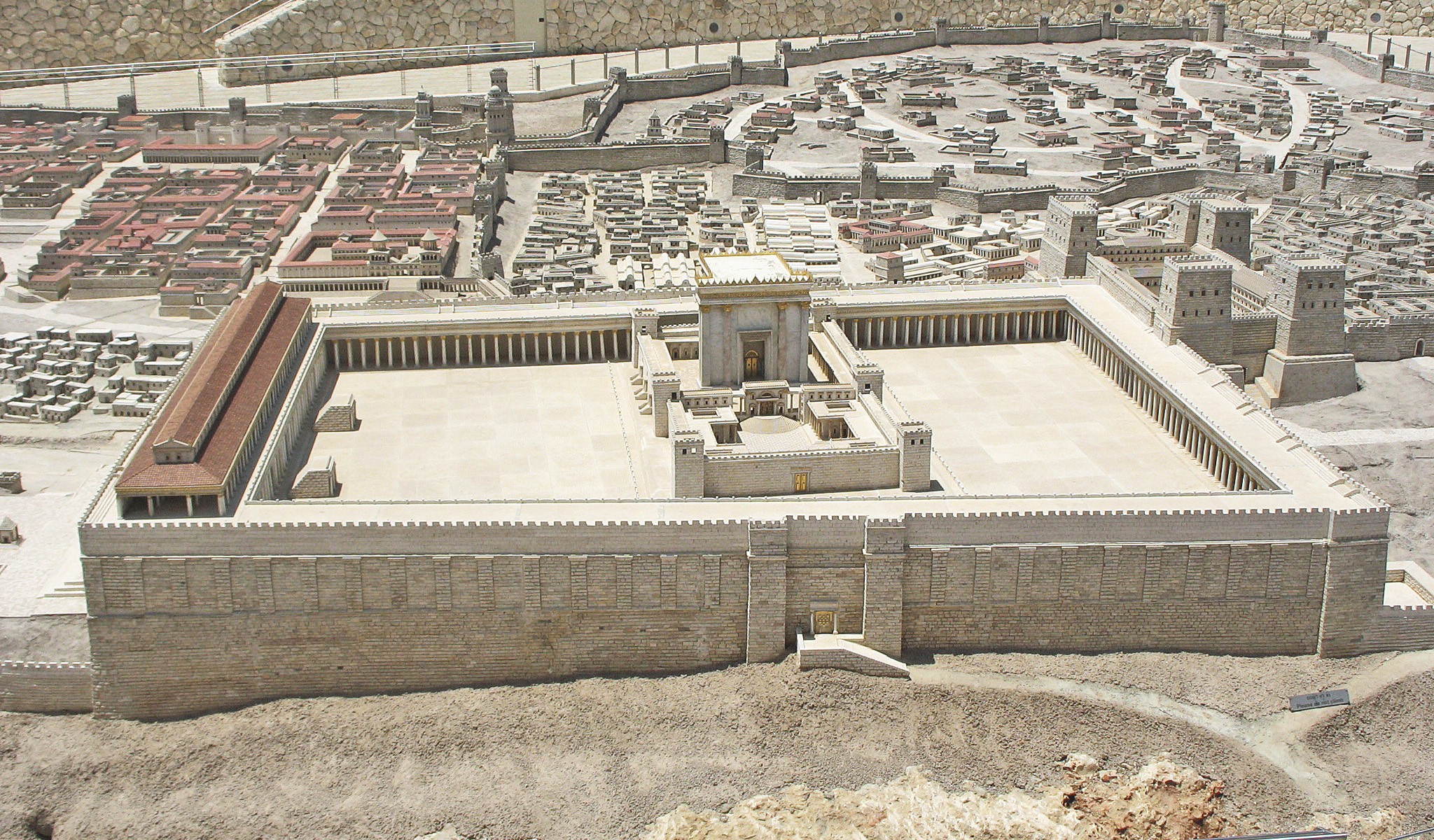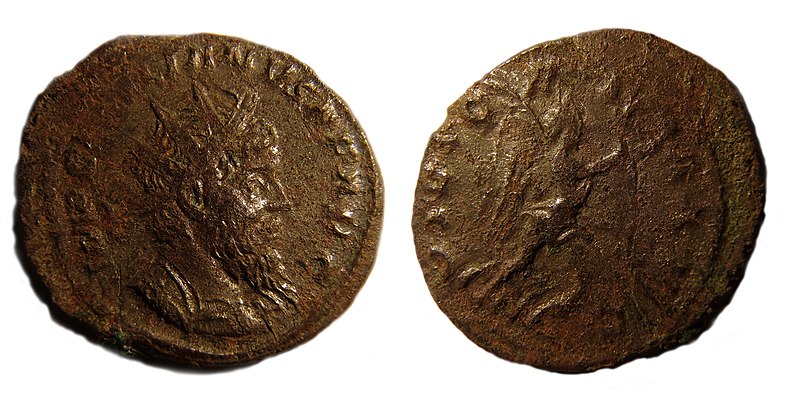Blog
Bulletin Articles
Reading Matthew 25 as a Unit
Monday, October 19, 2020Through the years, God has managed to hammer a few insights about the Bible into my thick head. One of them is that in the gospels, the order of stories matters. It’s common for the Evangelist to arrange material so that a text offers commentary on what precedes and follows it.
Reading the gospels in this way widens our focus. Rather than merely considering what a passage says, it’s important for us to ask what its context says about it too. Often, the writers do not spell out these connections (just as Jesus did not spell out the meaning of the parables for the multitudes), but when we make them ourselves, they give us a deeper insight into the Scriptures.
This process is particularly fruitful in Matthew 25. Even though Matthew presents all this material as part of one long discourse, we often don’t study it that way (except maybe at the end of a book study on Matthew when the teacher is desperately trying to reach Matthew 28 by the end of the quarter). We know the parable of the virgins, the parable of the talents, and the throne scene, but rarely do we tie all three of them together.
However, when we do, an important message emerges. The parable of the virgins is about perseverance. We are supposed to be like the wise virgins who kept their lamps lit until the bridegroom arrived, rather than like the foolish virgins who ran out of oil.
The parable of the talents is about productivity. We are to imitate the five-talent and two-talent servants, who did something with what they had been given, rather than the one-talent servant, who accomplished nothing.
The throne scene is about compassion. Jesus wants us to see that caring for His brothers and sisters is so important that He makes it equivalent to caring for Him. Our eternal destiny depends on the way we treat one another.
When we consider these three messages together, it answers questions that each individual message leaves unanswered. If we want to be like the wise virgins, in what should we persevere? Contextually, the answer is that we should persevere in taking advantage of opportunities to care for one another. If we want to be productive like the faithful servants, what does that look like? Contextually, it looks like caring for one another until the end of our time on earth. If we want to minister to one another’s needs, how should we do that? We should do it by continually taking advantage of opportunities for service.
Interestingly, this combined analysis leads to different applications than the ones we usually make. For instance, we generally read the parable of the talents as being about staying faithful (continuing to show up for services, not falling away) rather than serving faithfully. It’s a lot less demanding that way! However, when we pay attention to the full message of the Lord, we better understand the path that He would have us walk.
The Visual Setting of the Gospels
Friday, October 16, 2020
Compared to practically any other historical account in my experience, the Scriptures generally and the gospels in particular are very terse. The Evangelists write as though the Holy Spirit were charging them by the word. They condense stories to a few paragraphs and character sketches to a few words.
Even though these words are extraordinarily elegant and well chosen, at times they leave gaps in our understanding, especially when it comes to elements that readers 2000 years ago would have understood without further explanation. Just as we can refer to the Statue of Liberty or the White House without having to explain those structures in great detail to an American audience, the gospel writers assume familiarity with the landmarks of first-century Jerusalem. Unless we make an effort to include geographical understanding in the way we read the gospels, sometimes we’re going to miss the point.
In this week’s Bible reading, there are (at least) two places in which a grasp of Bible geography helps us to take hold of Jesus’ meaning. The first occurs during the story of the barren fig tree in Matthew 21:19-22. This text is often misappropriated by the name-it-and-claim-it folks who seize upon the message of v. 22 and insist that we are guaranteed to get everything we pray for, provided we pray in faith.
However, this interpretation fails to recognize several things. First, Jesus isn’t randomly venting His spleen on a poor unoffending fig tree. Instead, He is acting out the conclusion to the parable of Luke 13:6-9, a parable told against God’s unproductive people. In destroying the actual fig tree rather than giving it one more year as in the parable, He is announcing that time is up and the Jewish nation is going to be destroyed.
In this context, the discussion of “this mountain” in Matthew 21:21 takes on a whole new light. Jerusalem, after all, is built on a mountain. As Jesus and His disciples were leaving the city, its prominence, especially the prominence of the Temple Mount, would have been obvious. Jesus, then, isn’t telling His apostles that they will have the power to rearrange random topographical features. Instead, He is revealing that they will participate in the overthrow of the Jewish religious aristocracy that controlled the Temple Mount, and if they prayed, God would give them the help they needed.
A similar analysis applies to the parable of the vineyard in Matthew 21:33-46. Once again, Jesus’ words are referential, this time to the song of the vineyard in Isaiah 5:1-7. In Jesus’ repurposing, though, the problem isn’t unproductive soil, as in Isaiah. Instead, it is those who are controlling the vineyard and misappropriating its fruits.
The way Jesus opens the parable leaves no doubt about the identity of the guilty parties. To us, the details about the wall, tower, and winepress seem insignificant. However, Jesus is relating this parable inside the courts of the Temple, so that the wall becomes the wall of the temple, the tower becomes the Temple, and the winepress, the purification basin in the courtyard. It is easy to imagine the Lord gesturing to these features as He speaks! Once again, an understanding of geography makes His meaning clear, and it is certainly true that at the time, His enemies did not miss it.
Our Widow's Mite
Tuesday, October 13, 2020
When it comes to their service to the Lord, many Christians feel inadequate. They see other brethren who appear to have it all together in their service to God—their families are perfect, their smiles undimmed, their spiritual record spotless. What’s more, such Christians also often seem gifted beyond the norm. They serve effortlessly and well in any number of ways.
If we find ourselves troubled by such thoughts, it helps to turn to the story of the widow’s mite in Mark 12:41-44. In earthly, external terms, the widow looks like a spiritual failure too. Next to the massive contributions made by the wealthy, her two small coins looked like a rounding error. She wasn’t helping with the upkeep of the temple in any meaningful way. If she had stayed home that day, nobody but Jesus would have noticed the difference.
However, it is the widow and not the wealthy benefactors whom the Lord praises. They gave what they had left over, but she gave what she had. God wasn’t terribly concerned with the state of the temple’s finances, but He was very concerned with the state of the donors’ hearts. In His eyes, it was the one who gave almost nothing in earthly terms who shone the most brightly.
Today, it is both reassuring and alarming to realize that God judges us in the same way. 2000 years later, He still is not particularly concerned with externals. He is not impressed by the most transcendent talents among His people. If somebody can sing like David or preach like Apollos, it’s only because He made them that way.
The same is true for riches and poverty. If a Christian comes from a wealthy family, that’s a gift from God. Likewise for the Christian who is born with business acumen or abilities that employers value highly. We can squander such gifts or use them wisely, but even in the latter case, the credit belongs to God.
In His eyes, the important question is not what we have. It’s how we use it. Even if we are not very rich or not very smart or not very talented, we can be every bit as pleasing to Him as somebody who is extraordinarily smart and rich and talented.
Sure, the fruit we bear may be insignificant in comparison to the fruit they bear. However, just as the widow’s sacrifice could not be rightly measured by the surplus of the wealthy, our labor for the Lord cannot be measured by anyone else’s labor. Maybe that smart, rich, and talented guy has been coasting for 20 years, and God is pure sick of getting only what is convenient from him!
We don’t know, of course, and it’s not our place to judge anyway. Instead, we should worry less about what others are doing and focus on our own service. “Give what you have,” does not require more from us than we have to give. However, neither does it require less.
Without Neglecting the Others
Tuesday, October 06, 2020
There are a number of things that the Internet holds to be self-evident truths. Among these is that “Pharisee” and “legalist” are synonyms. To be a legalist is to be a Pharisee, and furthermore, to be concerned with obedience to the commandments of God is to be a legalist.
This is very convenient for opponents of the return to first-century Christianity. We say, “There is no authority in the Bible for the use of instrumental music in our assemblies.” They reply, “Pharisee!” We care about commandment-keeping, so we are legalists. We are legalists, so we are Pharisees. Jesus opposed the Pharisees, so we are enemies of the gospel and should be dismissed. QED, right?
However, before we abandon the Restoration because it is Pharisaical, it would be well for us to consider what, precisely, Jesus condemned about the Pharisees. To my knowledge, Matthew 23:23 appears to be the best Scriptural basis for the above argument. There, Jesus says, “You pay a tenth of mint, dill, and cumin, and yet you have neglected the more important matters of the law—justice, mercy, and faithfulness. These things should have been done without neglecting the others.”
Notice that nowhere in this does Jesus condemn paying attentions to the minute details of the Law. Instead, He objects to the hypocrisy of tithing garden herbs while failing to practice justice, mercy, and faithfulness. The problem wasn’t the commandments the Pharisees were keeping. It was the commandments they were breaking.
Similarly, we need to pay attention to Jesus’ two-part solution. The Pharisees need to start practicing justice, mercy, and faithfulness. However, they need to do so “without neglecting the others.” Yes, they need to pay attention to the more important matters of the Law. However, they also should continue to tithe garden herbs. Jesus is telling us that all of God’s commandments are important and should be followed, not just the big ones.
For us, the application is plain. I don’t know anybody who would class the Scriptural witness about mode of worship, use of church funds, etc. as “the more important matters of the Law.” We talk about those things a lot for the same reason that Paul talked about circumcision a lot—because God’s will in those areas frequently is ignored. However, no one sets them on the same level as “Love your neighbor as yourself.” If we aren’t practicing “Love your neighbor as yourself,” we are in a heap of trouble!
Nonetheless, even if we have an obedience problem there, the solution to the problem isn’t to focus on loving our neighbor while ignoring what God has to say about worship and the church treasury. Instead, it is to continue to honor what God has to say about worship and the church treasury while striving to love our neighbor better.
In short, obedience to God’s commandments never is a spiritual problem. It always is part of the solution. Obedience doesn’t make us Pharisaical. It makes us faithful. We don’t become more like the Pharisees by caring about all the commandments. Instead, paradoxically, we imitate them by refusing to attend to the commandments we don’t like.
Jesus Turns up the Pressure
Friday, October 02, 2020
As different as the four gospels are, all four of them put their greatest emphasis on the events of Jesus’ death, burial, and resurrection. Before that point, their narratives take different paths and discuss different things. At that point, all of them focus on the garden, the cross, and the empty tomb.
However, even before the gospels come together, we can feel them beginning to converge. Jesus, even though He will be the innocent victim, is the one firmly in control of the situation, bringing the threads of history together. Indeed, even though Matthew, Mark, Luke, and John are interested in different facets of the story, they all reveal Jesus doing the same thing: turning up the pressure on the chief priests.
John 12:9-11 reports that the resurrected Lazarus was, not surprisingly, attracting tremendous attention from the crowds. In response, the Jewish leaders decide not to believe Jesus because of the miracle, but to try to kill the evidence of the miracle—Lazarus—in order to keep the people from believing.
In Luke’s account of the Triumphal Entry in Luke 19:37-38, the crowds are celebrating Jesus’ entry as King into Jerusalem, using the words of Psalm 118:26. This is rebellion-against-the-Romans talk, so the Pharisees urge Jesus to quiet them. He refuses.
In Mark 11:15-17, Jesus cleanses the temple, driving out all the animal sellers and moneychangers who were clogging the temple courts. Everyone in Jesus’ day would have known who got a cut from all the commerce—the chief priests. According to Matthew 21:14-17, in response to His miracles of healing, the crowds begin to hosanna Jesus as the Son of David—more incitement to rebellion. The chief priests get angry and demand that Jesus shush them. Again, He refuses.
In this context, our final reading for the week is unsurprising. The chief priests plot with Judas for Jesus to be betrayed into their hands.
If they weren’t so utterly corrupt and evil, it would be easy to feel sympathy for the Jewish leaders at this point. Jesus has them completely boxed in. His spectacular miracles have won over the crowds. Those same crowds are saying irresponsible things about Jesus as King, and Jesus is allowing them to continue. He is challenging their authority and showing them up as spiritual frauds. All of this is happening in the spiritually volatile atmosphere of the week before Passover, a holiday that celebrated the Jews’ deliverance from a foreign oppressor.
If the chief priests do nothing, the situation will spin out of their control swiftly. If they decide to back Jesus so that the whole nation rises against the Romans, they are convinced that the Romans will win and destroy them along with Jesus. The only solution that is left is to solve the problem by killing the man, the option they decide to take.
We often think of the Jewish leaders as these devious, cunning plotters, and they were. However, all through the week before Jesus’ death, we see them running scared, constantly thwarted in their attempts to restore order by Jesus. They are the rulers of the nation, but they aren’t directing events. He is, and He is directing them toward a conclusion that nobody but God had even dreamed was possible.


_by_Phoebe_Traquair%2C_Mansfield_Traquair_Church%2C_Edinburgh.JPG)
